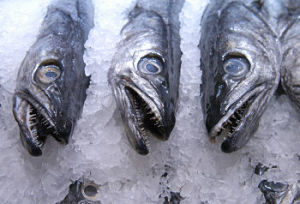
Popular myth states that extracted oils are healthy. The truth is that they contribute to processes that result in inflammation, faster aging, and malignancy
Extracted Oils Are the Most Dangerous
The government, the food industry, even doctors may all bombard you with advice to eat so-called “healthy fats,” in the form of:
• olive oil (for monounsaturated fats)
• other vegetable oils (for polyunsaturated fats)
• fish oil (for long-chain omega-3 polyunsaturated fats)
But when you start looking closely, you will be faced with an unpleasant surprise. These extracted oils are dangerous in three major ways.
WHAT ARE EXTRACTED OILS?
No whole food is entirely fat. Instead, fat is mixed in with the thousands of other components of the food, including proteins, carbohydrates, vitamins, minerals, and (if it’s a plant) protective phytochemicals that work as antioxidants.
Extracted oils are fats that are forced out of this whole food matrix and put into a capsule, bottle, or tub. Liquid vegetable oils, margarine, and fish oil are all examples of extracted oils.
WHAT FATS DO YOU NEED?
There are two kinds of fats you do need to get from your diet. These are the “short-chain” omega-3 and omega-6 fatty acids (which are polyunsaturated fats). Your daily need is low, only about 3% of your total

Extracted oils are pure fat, the densest source of calories, and are likely to end up as extra padding you don’t want or need
calories. Extracted oils are not necessary to meet this requirement if you are eating a wide range of whole plant foods.
Given an adequate supply of calories from any source (including carbohydrates and proteins), your body can handily make other kinds of fats you use, including saturated and monounsaturated fat, and can construct long-chain omega-3 and omega-6’s from their short-chain precursors.
HOW EXTRACTED OILS HURT YOU
ONE. Your body has no need for extracted oils. How do you know this? Extracted oils have been available for only the most recent part of human history, and then only to a fraction of the planet’s population. If these oils are so necessary, how did people survive, reproduce, and thrive before they were available?
Consuming extracted oils, which all have about 120 calories a tablespoon, crowds out healthy whole foods. The oil can also become a significant source of empty calories to bump up your weight.

You don’t need either fish oil or fish to get enough healthy omega-3’s. In fact, as the long chain omega-3’s in fish are so chemically unstable, these fats are likely to be heavy with dangerous oxidized fat particles. Ground flax seeds are a much safer and more economical source of healthy omega-3’s
TWO. When early humans were foraging in nature for food, they were finding nourishment that had close to equal amounts of omega-3 and omega-6 fatty acids. However, modern extracted vegetable oils are high in omega-6’s. So eating such oils skews your ratio of these two essential fats. You end up with too many omega-6’s in relation to omega-3’s. This has the potential to change some body processes in undesirable ways.
THREE (and most dangerous). Extracted oils are heavily attacked by oxygen, and the resulting damaged oil particles start a cascade of assault on your cells. The scientific name for this is “lipid peroxidation.” A “lipid” is a fat or related substance in your body that does not dissolve in water. “Peroxidation” means the lipid was damaged by oxygen or another particle generated as a result of oxygen’s actions.
You don’t need to worry about the technical jargon to understand this process. Oxygen loves to attack fat, which stores a lot of energy in a small space. Its first strike leaves an unstable, wrecked fat particle, which then itself harms other parts of the cell it’s in (including your genes and proteins), or even injures
your other cells. A trail of destruction results that contributes to inflammation, malignancy, and aging.
The most chemically unstable fats, the ones most likely to be oxidized and start a cascade of injury, are long-chain omega-3 fatty acids. This is based on their chemical structure. So the fat you are being advised by the media and medical establishment to swallow capsules of is the fat that is virtually certain to generate plentiful free radicals and other dangerous byproducts.
While your eyes and nervous system do require small amounts of long-chain omega-3’s, your body can make these tiny quantities from short-chain omega-3’s, which are more stable. This is definitely not a case of “the more the better.” In fact, the “just adequate” is the safest scenario. There is no reason to take fish oil pills full of deteriorating long-chain omega-3 fatty acids that act as time bombs in your cells.
The most chemically unstable oils in plant and animal foods are (in order of their likelihood of being attacked by oxygen):
• Long-chain omega-3’s
• Long-chain omega-6’s
• Short-chain omega-3’s
• Short-chain omega-6’s
• Monounsaturated fats
• Saturated fats
Antioxidants, abundant in whole plant foods, can stop the oxidation process and protect the plant, not to mention your cells. This is why small amounts of naturally occurring fats in whole plant foods are low risk to your health.
While the fats in whole plant foods are bathed in antioxidants, extracted oils lack this protection and are vulnerable. When extracted oil is damaged by oxygen, it is called “rancid.” But sometimes the rancidity is difficult to detect, and the process also continues inside your body.

Deep frying causes especially dangerous substances to form in fat, and these chemicals pervade the food that is being fried. Deep fried foods should be avoided.
This is the primary reason you should stay away from extracted oils in all their forms. Deep frying causes further chemical changes to the oils that makes them even more destructive. Note that, while saturated fats are the most stable against oxidation, they can be harmful through other mechanisms and are definitely not healthy foods.
WHAT’S THE BOTTOM LINE?
Here’s the best way to be healthy. Eat a wide variety of whole plant foods, including vegetables, fruits, legumes, whole grains, nuts, seeds, herbs, and spices. You are then eating foods composed of thousands to hundreds of thousands of substances, including many kinds of fat protected by the abundant antioxidants in whole plants. Your body knows how to process this food, getting you what you need with low risk.
If you are attentive to ensuring you get adequate omega-3s, you can safely do this with ground flax seed for pennies a day. Avoid extracted oils in all their forms and don’t stress about “healthy fats” – in fact, banish that phrase from your vocabulary.
If you enjoyed this post, you may want to learn more about the hazardous industrial process used most often to extract vegetable oil.
Intrigued? Now you can use our Whole Foods Blog Finder to target informative, fun postings on whole foods, plant-based diets. Quick information at no cost!
Blog posting by Janice Stanger, Ph.D. Janice authored The Perfect Formula Diet: How to Lose Weight and Get Healthy Now With Six Kinds of Whole Foods, a book that shows you how easy it is to thrive on a whole foods, plant-based diet. Janice is pleased to be a regular contributor to VegWorld Magazine, and this post will also appear in VegWorld.
Tags: aging, cancer, extracted oils, fish oil, free radicals, oil oil, omega-3 fatty acids, omega-6 fatty acids, oxidation, polyunsaturated oil, weight loss





